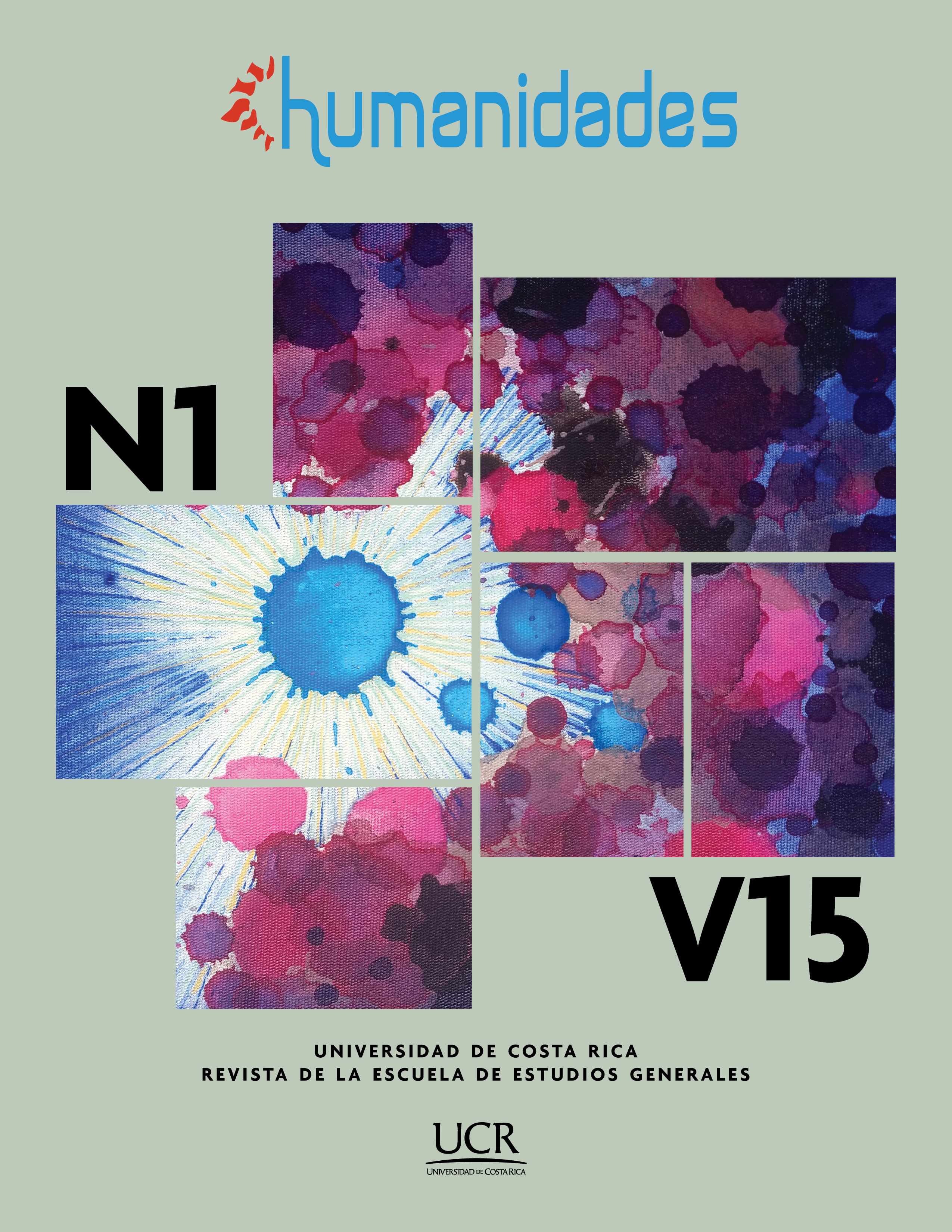Abstract
This essay aims to vindicate the role of Philosophy as an act of daily thinking, as an attribute common to all human beings, which has been blocked by the capitalist system, mainly in its neoliberal phase, which coincides with a broad and complex socio-environmental crisis, and in the face of which it becomes necessary precisely to activate a collective thinking that allows us to recompose the social fabric and project a more livable and sustainable future, for humans and for other living beings. It is concluded that thinking has to do with the capacity of attention in two senses: to contemplate and to care, so it is not an attribute of special beings, but of all human beings as desiring beings, and in apocalyptic times it is a vital necessity, since the lack of attention that characterizes our present puts at risk all life on the planet.
References
Araiza Díaz, V. (2021). Reinventar la naturaleza para hacernos cargo del Capitaloceno: la propuesta de Donna Haraway. Andamios. Revista de Investigación Social, 18(46), 413-441. https://doi.org/10.29092/uacm.v18i46.851
Arendt, H. (1963). Eichman in Jerusalem: A Report on the Banality of Evil. The Vinking Press.
Braidotti, R. (2019). Posthuman Knowledge. Polity Press.
Braidotti, R. (2018). Por una política afirmativa. Itinerarios éticos. Gedisa.
Braidotti, R. (2004). Feminismo, diferencia sexual y subjetividad nómade. Gedisa.
Butler, J. (2021). La fuerza de la no violencia. La ética en lo político. Paidós.
Cortés, N. (2015). Presentación a B. Stiegler. En Lo que hace que la vida merezca ser vivida. De la farmacología (N. Cortés, Trad., pp. 17-33). Avarigani Editores.
Crutzen, P. y Stoermer, E. (2000). The Anthropocene. IGBP Newsletter, 41(1), 17-18.
Deleuze, G. (1996). Conversaciones. 1972-1990. Pre-Textos.
Deleuze, G. (1994). Carta a un crítico severo. Cuaderno Gris, (11), 24-30. https://repositorio.uam.es/handle/10486/130407
Deleuze, G. y Parnet, C. (1980). Diálogos. Pre-Textos.
de Sutter, L. (2020). ¿Qué es la pop-filosofía? Cactus.
Escobar, A. (2014). Sentipensar con la tierra: nuevas lecturas sobre desarrollo, territorio y diferencia. UNAULA.
Fals Borda, O. (2009). Una sociología sentipensante para América Latina. Siglo del Hombre.
Foucault, M. (1991). Las palabras y las cosas. Siglo XXI.
Foucault, M. (2008). Las tecnologías del yo. Y otros textos afines. Paidós.
Garcés, M. (2016). Fuera de clase. Textos de filosofía de guerrilla. Galaxia Gutenberg.
Garcés, M. (2020). Escuela de aprendices. Galaxia Gutenberg.
Guattari, F. (1996). Las tres ecologías. Pre-Textos.
Haraway, D. (1999). Las promesas de los monstruos: una política regeneradora para otros inapropiables. Política y Sociedad, (30), 121-163. https://dialnet.unirioja.es/servlet/articulo?codigo=154534
Haraway, D. (2003). The Companion Species Manifesto: Dogs, People, and Significant Otherness. Prickly Paradigm Press.
Haraway, D. (2004). Testigo_Modesto@Segundo_Milenio.HombreHembra©_Conoce_Oncoratón®: feminismo y tecnociencia. Editorial UOC.
Haraway, D. (2016). Staying with the Trouble: Making Kin in the Chthulucene. Duke University Press.
Hooks, B. (2022). Enseñar pensamiento crítico. Rayo Verde Editorial.
Horkheimer, M. (2002). Crítica de la razón instrumental. Trotta.
Kimmerer, R. W. (2019). Una trenza de hierba sagrada. Saber indígena, conocimiento científico y las enseñanzas de las plantas. Capitán Swing.
Latour, B. (2004). Politics of Nature. How to Bring the Sciences into Democracy. Harvard University Press.
Latour, B. (2010). An Attempt at a “Compositionist Manifesto”. New Literary History, 41, 471-490. http://www.jstor.org/stable/40983881
Latour, B. (2012). Esperando a Gaia. Componer el mundo común mediante las artes y la política. Revista Otra Parte, (26), 67-76. http://www.bruno-latour.fr/sites/default/files/downloads/124-GAIA-SPEAP-SPANISHpdf.pdf
Latour, B. (2019). Dónde aterrizar. Cómo orientarse en política. Taurus.
Moore, J. (2013, 13 de mayo). Anthropocene or Capitalocene: On the Origins of our Crisis. (Part I: Excerpt from Ecology and the Accumulation of Capital). Jason Moore. https://jasonwmoore.wordpress.com/2013/05/13/anthropocene-or-capitalocene/
Preciado, P. B. (2022). Dysphoria mundi. El sonido del mundo derrumbándose. Anagrama.
Puig de la Bellacasa, M. (2012). ‘Nothing comes without it’s world’: thinking with care. The Sociological Review, 60(2), 197-216.
Rolnik, S. (2019). Esferas de la insurrección. Tinta Limón.
Salgado Álvarez, J. (2020). Revelando mi posicionamiento en mi investigación doctoral, gracias a aportes feministas. Crítica y Resistencias. Revista de conflictos sociales latinoamericanos, (10), 71-87. https://www.criticayresistencias.com.ar/revista/article/view/137/125
Shiva, V. (2006). Manifiesto para una democracia de la tierra: justicia, sostenibilidad y paz. Paidós.
Stengers, I. (2014). La propuesta cosmopolítica. Revista Pléyade, (14), 17-41. https://www.revistapleyade.cl/index.php/OJS/article/view/159
Stiegler, B. (2015). Lo que hace que la vida merezca ser vivida. De la farmacología. Avarigani Editores.
Tafalla, M. (2019). Ecoanimal. Una estética plurisensorial, ecologista y animalista. Plaza & Valdés.
Tsing, A., Swanson, H., Gan, E. y Bubandt, N. (Eds.). (2017). Arts of Living on a Damaged Planet. University of Minnesota Press.
Valle, A. J. (2022). Jamás tan cerca. La humanidad que armamos con las pantallas. Paidós.
Weber, A. (2017). Matter and desire. An Erotic Ecology. Chelsea Green Publishing.
Weber, A. (2011). The Book of Desire: Toward a Biological Poetics. Biosemiotics, 4, 149-170. https://doi.org/10.1007/s12304-010-9100-2
Yusoff, K. (2019). A Billion Black Anthropocenes or None. The University of Minnesota Press.
##plugins.facebook.comentarios##

This work is licensed under a Creative Commons Attribution-NonCommercial-NoDerivatives 4.0 International License.
Copyright (c) 2025 Revista humanidades



